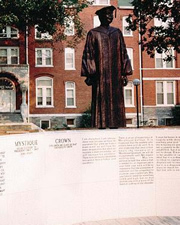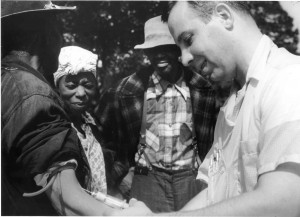Sun 13 Sep, 2009
The recession and the growing racial divide
Comment now Filed under: Thinking about race, privilege and inequality| Tags: Dedrick Muhammad, Racial inequality, Unemployment |
Barbara Ehrenreich and Dedrick Muhammad have an op-ed in this morning’s New York Times in which they make the case, which I have explored previously, that the recession has been especially hard on black families.
In their essay, entitled “The Recession’s Racial Divide,” the authors are scrupulously fair towards those whites who, they argue, are engaged in “racial resentment, loosely disguised as a populist revolt” against what they perceive as unfair bias towards blacks and a socialist president hell-bent on implementing stealth reparations for slavery. As they say:
When you’re going down, as the white middle class has been doing for several years now, it’s all too easy to imagine that it’s because someone else is climbing up over your back.
In fact, however, black Americans have not gained any unfair advantage in recent decades, nor are they at risk of doing so now. Far from it. As Ehrenreich and Muhammad point out, “blacks are the ones who are taking the brunt of the recession.”

